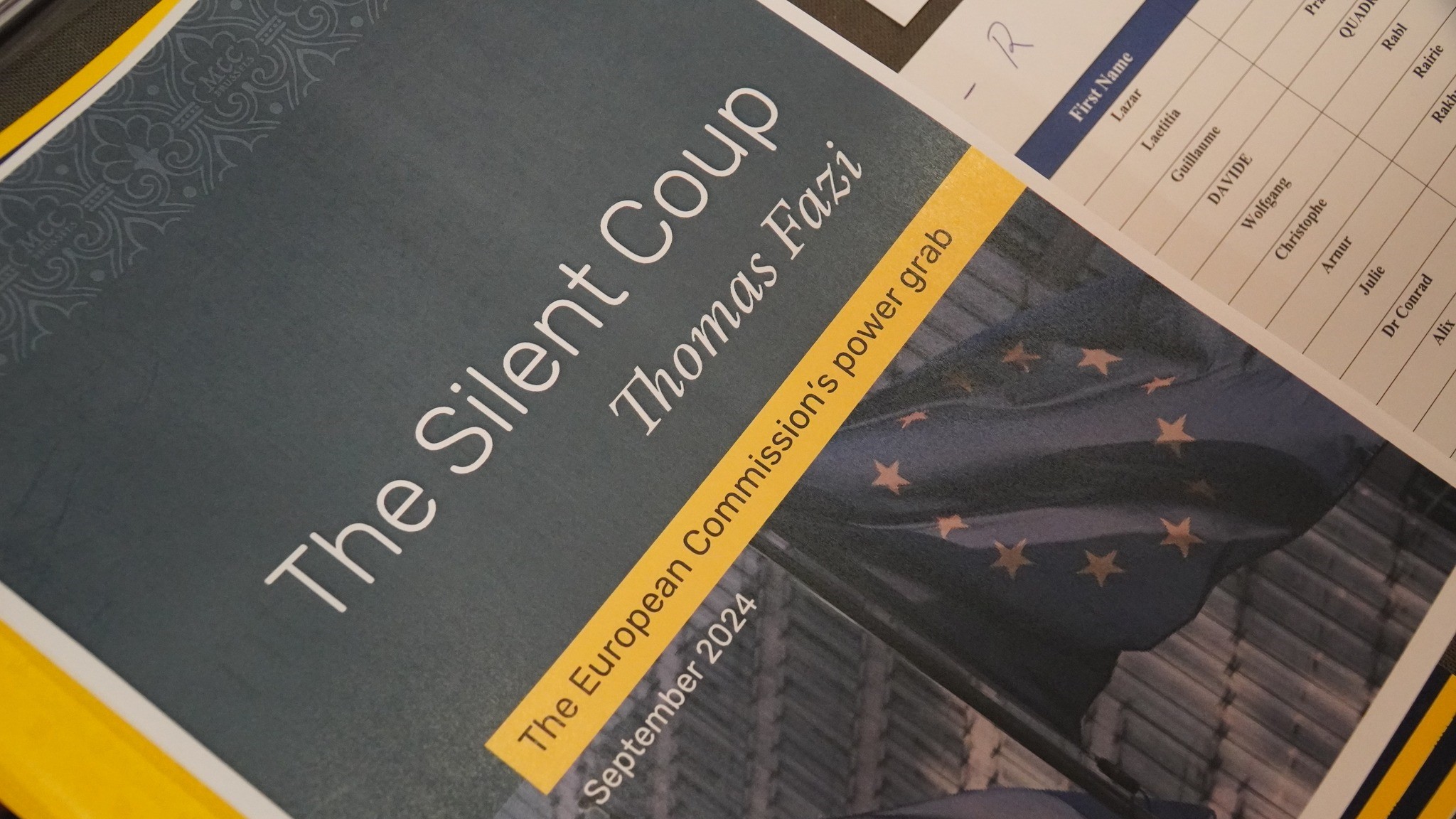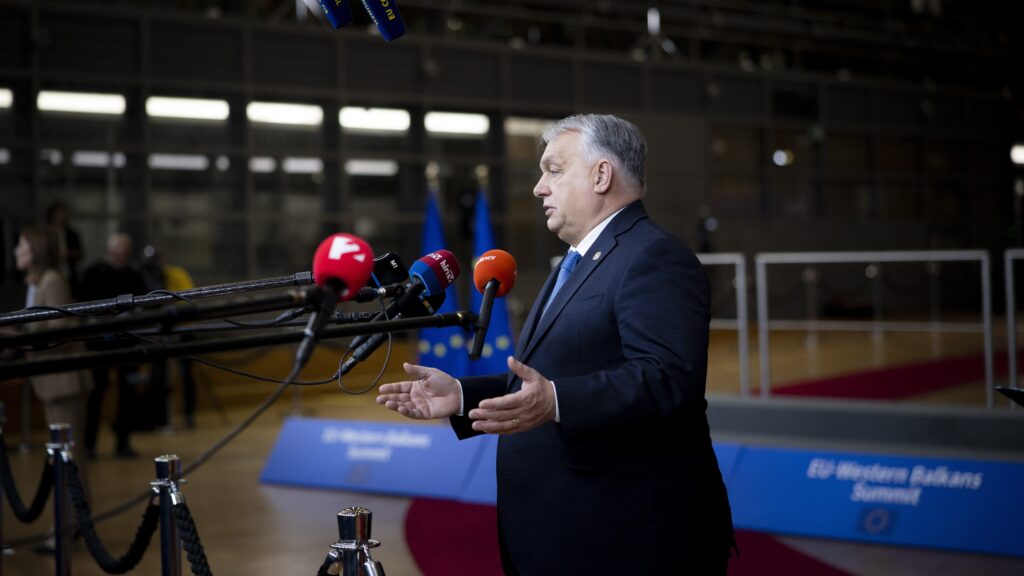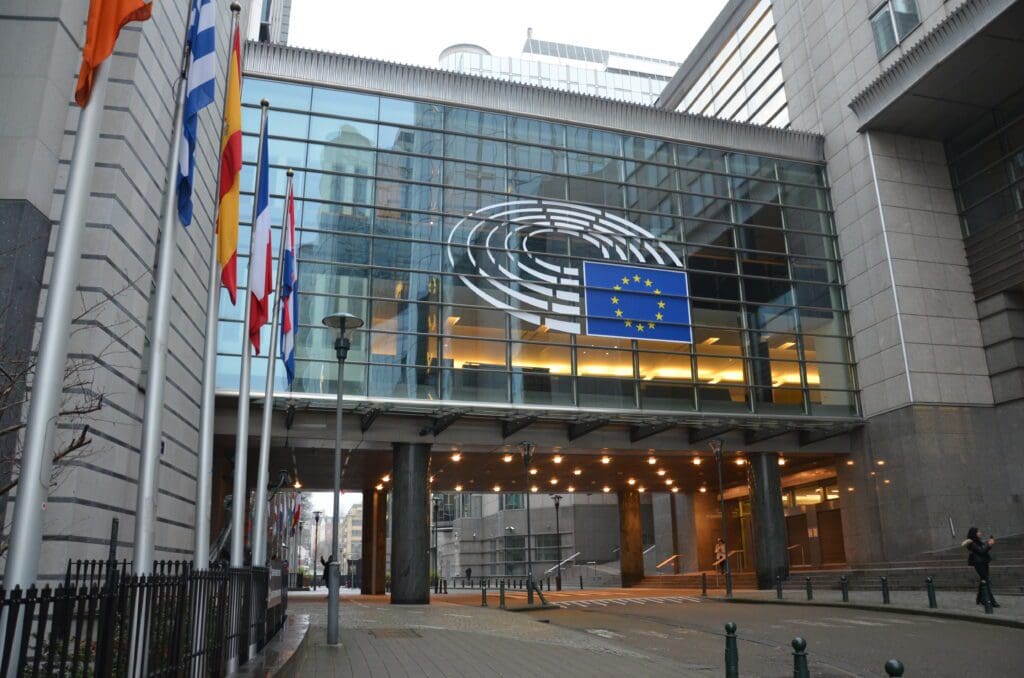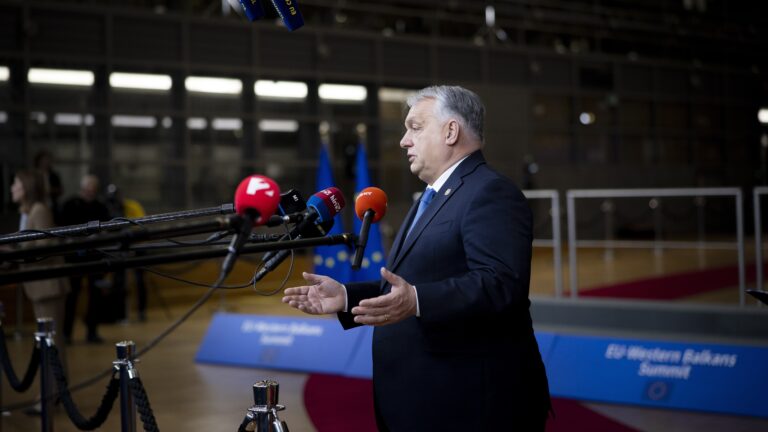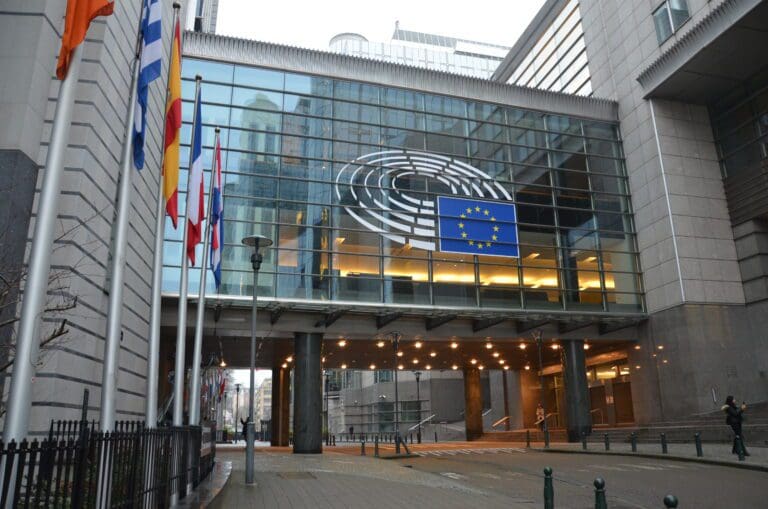A debate titled The Silent Coup: The European Commission’s Power Grab at MCC Brussels on Wednesday aimed at discussing the notion that the series of crises in recent years within the European Union have been accompanied by the expansion of the European Commission’s power.
The conference featured research by Italian author and journalist Thomas Fazi, whose report ‘The Silent Coup’ was recently published by MCC Brussels. In his report Fazi argues that the sovereign debt crisis, the refugee crisis, the Brexit referendum, the COVID-19 pandemic, and the war in Ukraine all contributed to the widening of the European Commission’s competences. The researcher sought to answer whether the Commission used these crises as a pretext to create a more supranational and centralized EU, or whether its actions were merely a ‘natural’ response to the challenges.
In his presentation, Thomas Fazi explained that the process was driven largely by Ursula von der Leyen, President of the European Commission, who played an active role in reshaping EU governance.
He noted that his research highlights how the Commission’s power grab occurred mostly ‘insidiously’, through various forms of ‘competence expansion’. He stated: ‘We are witnessing formal treaty amendments without democratic debate, the transfer of sovereignty from the national to the supranational level, which comes at the expense of democratic oversight and accountability.’ He referred to this as ‘creeping integration’, ‘hidden integration’, or, in the words of political philosopher Perry Anderson, ‘a coup’.
No Title
The Silent Coup: The European Commission’s power grab 18:30 – 20:00 Wednesday 11 September 2024 Press Club Brussels, Rue Froissart 95, 1040 Brussels In recent years, a succession of crises for the EU has seen an accompanying expansion of the power of the European Commission.
The author added that his research also examines the shift in the power dynamics between the Commission, the EU’s executive body, and the Council, which represents member states, as well as the paradox that this process was often supported by the member states themselves, at the cost of their own sovereignty. According to Fazi, this trend raises concerns about the erosion of national sovereignty and democratic accountability, which have accompanied this process.
Frank Furedi, the director of MCC Brussels, noted in his speech that the most important task for conservatives in Brussels today is taking action against the ‘blind federalism’ that views borders and nations fundamentally negatively. He argued that the proponents of this trend employ a ‘salami-slicing tactic’, constantly taking ‘a little more from the nation to give a little more to the Commission’.
Furedi suggested that the conservative right must unite and collectively oppose mass migration and the Green Deal, ‘as both will have a serious and damaging impact on the lives of European citizens.’
‘We must fight against the policies of the Commission and the federalist movement, which, in a sense, belittles and cordons off anyone who pursues national or sovereigntist policies,’ the MCC Brussels leader warned.
Related articles:

